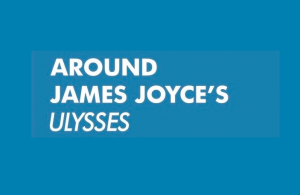Since its publication in 1918 in England and 1933 in the United States, James Joyce’s Ulysses has attracted much public attention. Banned in Ireland and in the US on account of its ostensibly sexual content, the novel was triumphantly re-published in 1922. That edition was hailed as the most important modernist work, with its structure and content mapping the Dublin of June 16th, 1904, subsumed in none other than the trope of “the book as the world” (Omnis mundi creatura quasi liber et pictura). Ulysses, then, is a crucial humanist text, and one of the most humane, in which Bloom begins his day talking to the black she-cat and Dedalus ponders upon the lack of difference between dogs and humans, as both are mortal creatures. The novel comprises not only a day in Leopold Bloom’s and Stephen Dedalus’ lives but also manifold references to the history of Ireland and its symbols, aside from European mythology and philosophy. The text provides a bridge between the past and the present becoming the trajectory towards the future because the narrative and its character became inspirations for such diverse writers as Flann O’Brien and J.M. Coetzee. The series of meetings: “Around James Joyce’s Ulysses. Encounters with the (Con)Text” will explore the layers of meaning encapsulated in the novel itself as well as its background and influence on the Irish cultural life of the twentieth and twenty-first centuries.
The project is co-organized by the Department of English Literature and Literary Linguistics, Irish Honorary Consulate in Poznań and Irish Culture Foundation.
You have to register and ask for the Zoom Link at: oswajanie.joyce@fki.home.pl

